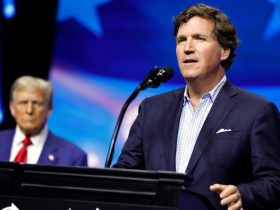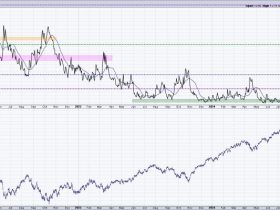In a recent statement made by former President Donald Trump during a rally in Pennsylvania, he claimed that the state has 500,000 fracking jobs. However, upon closer examination, it becomes apparent that this number is a significant exaggeration and does not accurately represent the employment situation related to fracking in Pennsylvania. Let us delve deeper into the context surrounding Trump’s claim and the reality of fracking jobs in the state.
Fracking, short for hydraulic fracturing, is a controversial method used to extract oil and natural gas from underground rock formations. It has been a topic of heated debate due to concerns over environmental impact, public health risks, and its contribution to climate change. Given the contentious nature of fracking, the number of jobs associated with this industry holds significant weight in political discourse and economic discussions.
Pennsylvania is indeed a key player in the fracking industry, particularly in the Marcellus Shale region, which spans across several states in the northeastern United States. It is true that fracking has brought about employment opportunities in the state, but Trump’s claim of 500,000 fracking jobs is grossly inflated. According to data from the Pennsylvania Department of Labor and Industry, the total number of jobs in the oil and gas industry in the state was around 32,000 in 2020. This figure includes jobs beyond just fracking, such as pipeline construction, transportation, and support services.
The discrepancy between Trump’s claim and the actual employment figures can be attributed to various factors. Firstly, the term fracking jobs is vague and can encompass a wide range of positions within the oil and gas industry. It is possible that Trump’s statement conflated direct employment in fracking operations with indirect jobs in related sectors. Additionally, the figure of 500,000 may have been based on outdated or inaccurate data, reflecting a misunderstanding or misrepresentation of the current state of the industry.
Furthermore, the impact of fracking on employment extends beyond just job numbers. While the industry does create jobs, critics argue that the economic benefits may be short-term and come at the cost of long-term environmental and public health concerns. The boom-and-bust nature of the fracking industry can also lead to fluctuations in employment levels, making it crucial to take a nuanced and comprehensive approach when assessing its true impact on the economy.
In conclusion, Trump’s claim of Pennsylvania having 500,000 fracking jobs is a glaring exaggeration that does not align with the reality of the industry in the state. While fracking has indeed brought about employment opportunities, the actual number of jobs is significantly lower than what was asserted. It is essential to critically evaluate such claims and rely on verified data to gain a more accurate understanding of the complex dynamics surrounding fracking and its implications for both the economy and the environment.











